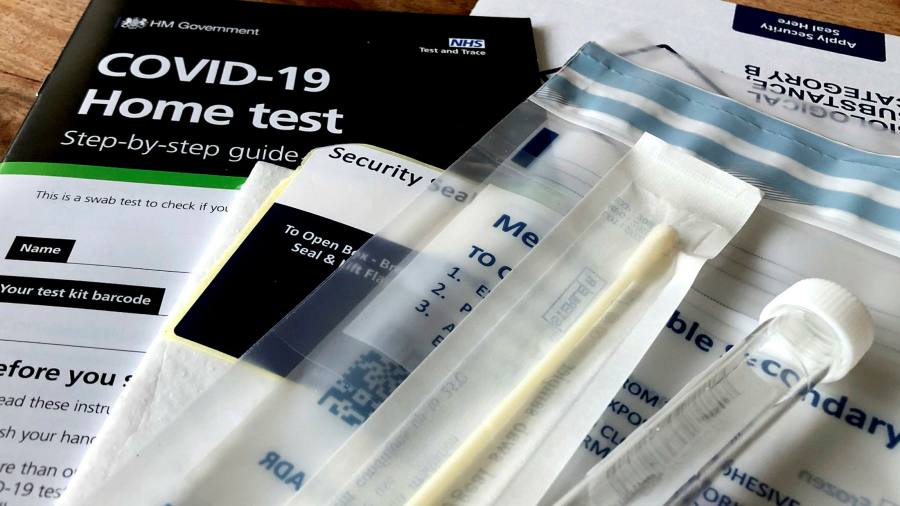[ad_1]
The mystery person in the UK with the concerning variant of Covid-19 prevalent in Brazil has been found, according to two officials, bringing to an end a week-long nationwide hunt.
Public Health England announced on Sunday that six people in the UK had been infected with the P.1 strain of coronavirus linked to a surge in cases in Brazil, including one person they had been unable to trace. This set off a detective-style hunt for the individual.
The tracing of the mystery person, who has not been publicly identified, came as the latest official data showed that the number of coronavirus infections continued to fall across the UK in the week to February 27.
International concern about the P.1 variant has escalated in recent weeks as more than 25 countries have detected it, including Belgium, Sweden and the UK. Research released this week found that the strain is up to twice as transmissible as some others and is able to evade immune protection from prior infection.Â
Revealing the variant had been found in the UK for the first time, Public Health England said on Sunday that two cases in England involved the same household in south Gloucestershire, where one person had travelled back from Brazil in mid-February. Another three people were identified in Scotland, and had also travelled from Brazil.
It is still unclear to what extent mutations seen in the new variant will change the effectiveness of the existing vaccines. One study, released this week, suggested that variants may be less dangerous to vaccinated people and recovered patients than previously thought.
Cases of another variant of concern, known as 501.v2 and first identified in South Africa, have also increased in the UK in recent days. Thirty-one new cases have been found using genomic sequencing since last Thursday, taking the total number of confirmed and probable cases to 295, according to official data.
The 501.v2 variant shares some of the same mutations as P.1, including particularly concerning changes to the spike protein that it uses to enter human cells.
The spread of these new variants are posing the ultimate challenge to England’s test and trace system, which suffered from missed targets and criticism last year.
Decisions about how safe it is to loosen lockdown restrictions according to the road map set out last month hinge in large part on the programme living up to its fundamental mission — to locate specific clusters of the virus and ensure they spread no further.
The unknown individual who was infected with the P.1 variant is thought to have been tested on February 12 or 13, via a home test. They did not fill out their details properly, so test and trace had no phone number or address to use to contact them.
PHE worked with postal and courier services to find out where the test may have been sent to originally by test and trace, and narrowed the hunt down to 397 houses in south-east England on Tuesday.
There is currently no evidence of person-to-person transmission of the P.1 variant in England.
The Department of Health and Social Care declined to comment on whether the mystery person had been found.
Data released by the Office for National Statistics showed that an estimated 248,100 people in England had Covid-19 — roughly one in 220 of the population. This is down from one in 145 people in last week’s report.
In Wales the rate was down to one in 285 from one in 205 last week and in Northern Ireland down to one in 325 from one in 195. The lowest level of infection was in Scotland, where the rate dropped to one in 335 from one in 225 last week.
Among people aged above 70, the infection rate has fallen to one in 500.
Meanwhile, the government’s latest estimate for R, the number of people each infected person infects, remained largely unchanged at 0.7 to 09, compared with 0.6 to 0.9 the previous week.
Additional reporting by Sarah Neville
[ad_2]
Source link






